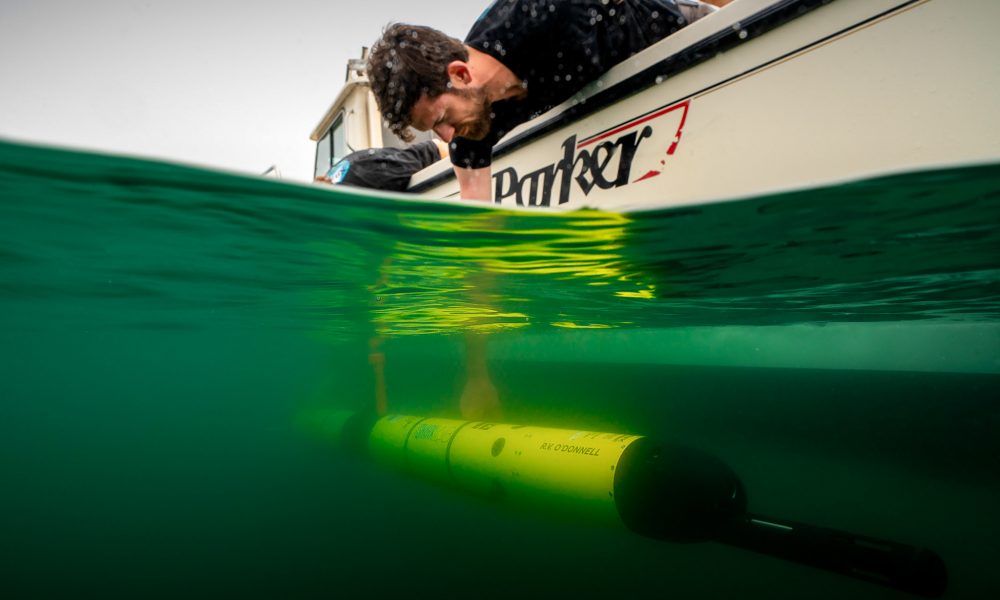Technological advances, such as molecular analysis, have granted new insights into marine ecosystems that would never have been possible years before. These advancements have greatly affected future researchers, requiring new skills for successful endeavors.
The Shark Lab at Long Beach State is a prime example of technological advancements which raised the bar for skills needed for future marine researchers.
Chris Lowe, head of the Shark Lab, explained how technology has played such a big role in current research efforts.
“The technology is what’s changed the game in the science that we do,” Lowe said. “Five years ago, I couldn’t imagine the technology that we’re using now.”
Lowe said that drones now allow research that would’ve cost $10,000 for an aerial observation at a fraction of the price. The Smithsonian Institution released an article discussing how the lower price of drones has assisted in research and allowed researchers to conduct more work.
Felicity Eriksson, an undergrad working in the Shark Lab, has been operating these drones and assisting the efforts of graduate students.
“I was collecting research or data for research in the Shark Lab, and I was looking at the movement of spotted eagle rays and tracking their movement patterns through drone footage I shot,” Eriksson said.
The usage of drones helps to understand the movement patterns of organisms. It can be challenging to monitor species that frequently move or migrate, so the ability to operate drones can assist with understanding these animals.
Outside of drones, autonomous underwater vehicles are another resource used for collecting data. The vehicle is sent out to move up and down to points designated and pops back up when it finishes. From there, the cache of data is downloaded and processed for reading.
The Shark Lab has developed sensors that collect real-time data on sharks’ actions. One example Lowe gave was Fitbits, designed to monitor and measure sharks’ activities, ranging from movement to hunting.
Data collected through monitoring has applications that affect other data collected by other researchers. Yamilla Samara is a graduate student researching the diet of juvenile white sharks.
“You only need a small tissue sample from the animal, and you analyze chemical signatures within that tissue,” Samara said.
Studying the carbon and nitrogen in the diet of young white sharks reveals the prey items they hunt. Samara uses this data, along with the movement data gathered by colleagues, to create a picture that describes the behavior of these animals when hunting.
These advances have changed the experience needed for marine science.
“What’s different is now, these days, if you want to study sharks and you don’t know how to use this technology, you’re in trouble,” Lowe said.
The technological element requires students to implement courses that, in the past, they would’ve viewed as unnecessary. Physics, engineering and calculus are some of the classes needed for research due to the increased usage of advanced technology and amount of data researchers collect.
Victoria Greenwald, an undergrad marine biology major for the Shark Lab, explained how marine sciences is not going out to beaches but predominantly dealing with data in the lab.
“It’s mainly just lab work,” Greenwald said. “The whole point of marine science is collecting data, asking questions and solving questions, and half of that is coding.”
Students working in the Shark Lab said coding was a valuable skill. Collecting the quantity of data from monitoring animals requires basic knowledge in coding to operate programs that assist in translating the data. Without simple coding skills, these tasks in research would take much longer.
The amount of data also presents a possible implementation of AI in the future. According to Lowe, AI could augment data collection and make it easier for researchers to compile data.
Technical skills are the key component in the progress of technology and marine scientists. In the future, these skills will become common practice in understanding the world’s oceans.
Lowe said he hopes future marine biology students will have hybrid skills from other fields. For example, students trained in computer sciences could better understand data analysis programs or learn advanced mathematics to predict changing marine environments.




